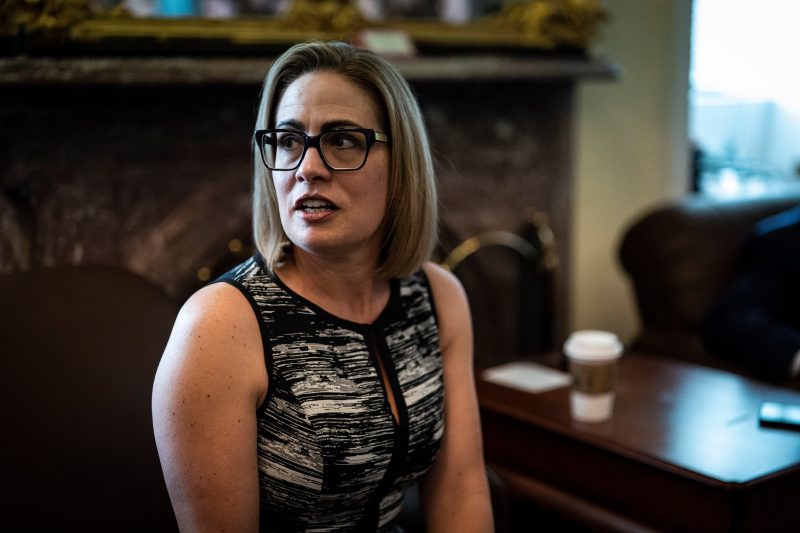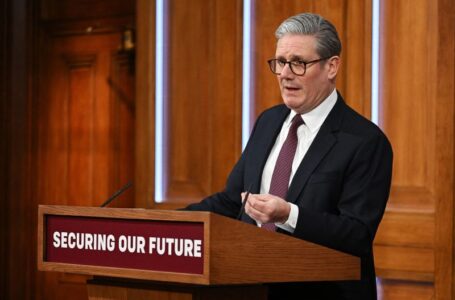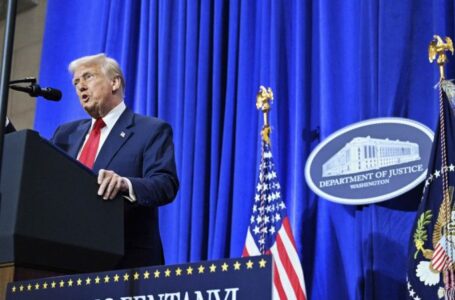What to know about the Arizona Senate race now that Sinema is out


Sen. Kyrsten Sinema (I-Ariz.) announced on Tuesday that she will not seek reelection this year, opting out of what would have been a contentious, three-way contest in a swing state that will be consequential for the political balance of the U.S. Senate.
Here’s what to know about how Sinema’s decision shakes up the race.
Several candidates are in the race, but Rep. Ruben Gallego (D-Ariz.) and Kari Lake, a former Arizona Republican gubernatorial candidate and news anchor, are widely expected to be the Democratic and Republican Senate nominees.
Senate primaries for each party are scheduled for July 30.
Sinema announced she was leaving the Democratic Party in 2022 to become an independent. At the time, she said it was “a reflection of who I’ve always been, and it’s a reflection of who Arizona is.”
But in her video statement announcing her decision not to run for reelection, the senator lamented that while she continues to believe in her bipartisan approach, “it’s not what America wants right now.”
Polls had shown Sinema lagging far behind both Lake and Gallego, even though she’s been an elected official representing Arizonans since the early 2000s and is well-known within the state. Some Democrats say that her political approach is what led party members to stop supporting her.
The race is consequential for determining the balance of power in the Senate in 2025.
Although Arizona’s second Senate seat is represented by a Democrat, Sen. Mark Kelly, it remains a swing state. And Sinema’s election to the Senate in 2018 marked the first time a Democrat had represented the state in the chamber since 1995.
Democrats hold a slim 51-seat majority in the Senate and face a difficult election map in 2024. Democratic incumbents in red states including Ohio and Montana are up for reelection, while Republicans who are running for reelection are doing so in states that voted for Trump in 2020.
Sen. Joe Manchin III (D-W.Va.), another moderate, announced he is not running again, all but guaranteeing a Republican will succeed him.
Sinema’s decision not to run means the state will avoid a three-way race with Gallego and Lake.
Some Democratic strategists said they believed Sinema’s run could hurt Gallego’s bid, empowering the Trump-endorsed Lake, who has denied the results of her 2022 gubernatorial loss.
Senate Majority Leader Charles E. Schumer (D-N.Y.) and the Democratic Senatorial Campaign Committee had also not endorsed a candidate in the race before Sinema’s announcement Tuesday. There is a long-standing tradition of the DSCC backing incumbents, but after Sinema left the party in 2022 and said she does not caucus with Democrats, it became less clear how the group would handle her reelection.
Schumer and the DSCC formally endorsed Gallego, who joined the race more than a year ago, within hours of Sinema’s announcement.
Gallego thanked Sinema for her service in a statement and urged her to help him reject Lake and her “dangerous positions.”
Lake also issued a statement, saying that while they didn’t agree on everything, “I know she shares my love for Arizona.” She also took a jab at her Democratic opponent, saying Sinema “had the courage” to resist eliminating the filibuster despite “pressure from the radicals in her party like Ruben Gallego.”
Liz Goodwin contributed to this report.











